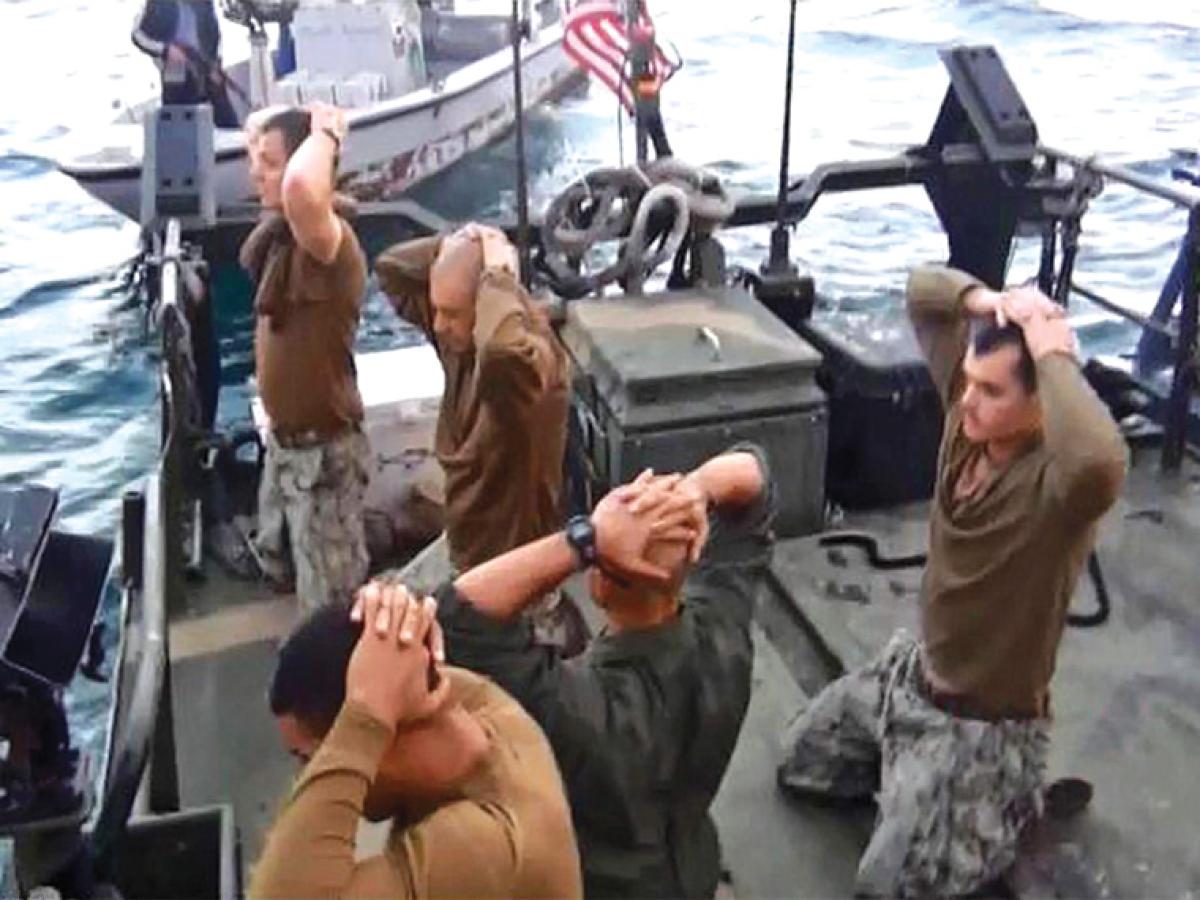On 12 January, images of two U.S. Navy boat crews captured by Iran competed in the media with those of President Barack Obama at the State of the Union address. Anonymous government officials have told USNI News that Iran did not “spoof” the boat crews into their waters by sending fake Global Positioning System (GPS) signals. Rather, it was because of the crew’s “misnavigation.”
Having long served in uniform and as a government civilian, I am wary of assertions by anonymous officials. I am also wary of high-profile coincidences.
So let us test the spoofing theory using the method recommended by every sleuth from Miss Marple to Agent Gibbs on NCIS—means, motive, and opportunity.
Means: In 2011 Iranian engineers said they used GPS spoofing technology to cause a CIA drone operating in Afghanistan to land in Iran. U.S. government officials said that it was not possible. Several months later a professor at the University of Texas demonstrated how it could be done, and the capability to spoof became widely acknowledged. The same professor later showed how to spoof and redirect a large vessel.
GPS spoofing technology has become more sophisticated and less expensive since 2011. At last year’s DefCon hackers’ convention in Las Vegas, a Chinese researcher published step-by-step instructions for building a spoofing device and sold kits for around $300.
So it is probably safe to say Iran had the means to spoof at least some GPS receivers.
Motive: Capturing U.S. sailors in its waters on the day of the U.S. President’s major speech was a huge international coup for Iran. It came at a time when it was eager to divert national and international attention from its concessions on nuclear development and the huge amounts of its treasure that was still frozen in Western banks. And what better way to show Iran as a reasonable and rational member of the international community than by quickly returning the ten wayward sailors?
Opportunity: The two Navy riverine boats were transitioning from Kuwait to Bahrain in an apparently routine operation. The logical route should have been to run roughly parallel to the coasts of Kuwait and Saudi Arabia. Radar should have been a primary navigation tool helping the sailors maintain their distance off the shore to their right, look for oil platforms and other obstructions ahead, and detect and avoid other vessels. Yet reportedly some senior Navy leaders had been encouraging limited use of radar to facilitate stealthier operations.
Not using radar would mean increased reliance on GPS. While most Navy GPS navigation devices have anti-spoofing security capability, using it requires additional procedures and encryption material that must be carefully guarded and secured. For routine operations, some sailors navigate in the unsecured “civilian GPS” mode.
Loran electronic navigation is also available in the Persian Gulf. Saudi Arabia transmits strong signals that, while not quite as precise as GPS, are virtually impossible to jam or spoof. In fact, Loran was an essential tool for U.S. forces in the first Gulf War before GPS receivers were widely available. When the United States decided to terminate its Loran system in 2010, most of the equipment on U.S. government aircraft, ships, and boats was removed.
We might never know how much opportunity Iran had to spoof. But there is evidence that U.S. policy and tactical decisions could have opened the door.
Conclusion: An official investigation into the incident is ongoing. When done, policy makers may well conclude that it is not in the Navy’s or the nation’s interest to make the results public. But there are some things we know:
• Our military forces, civil infrastructure, and economy are highly dependent on GPS signals.
• Presidents have been concerned about GPS dependence and vulnerability since 1998 and have issued orders intended to address the problem. Little action has been taken, and much of what has been done is threatened by huge cost overruns and delays.
• As the world’s superpower, our vulnerabilities will continue to be targeted by terrorists and other nations.
• GPS disruptions, such as a very minor software glitch like the one that occurred on 26 January, can have worldwide, cross-industry impacts.
• The outcome of the next GPS disruption might be much worse than a minor diplomatic embarrassment.
Captain Goward is president of the nonprofit Resilient Navigation and Timing Foundation. As a Senior Executive, he served as the maritime navigation authority for the United States. While a Coast Guard officer, he was responsible for all Coast Guard boat forces.



